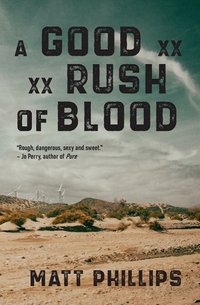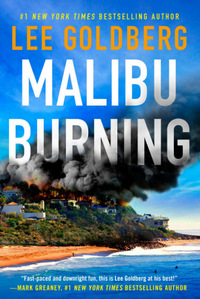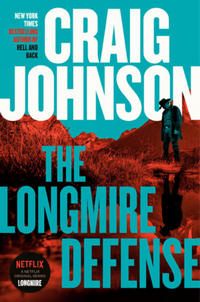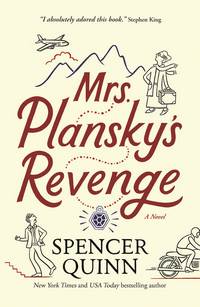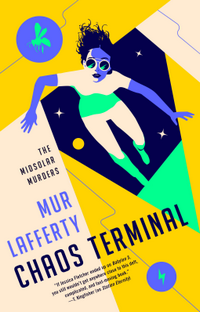 Chaos Terminal
Chaos Terminal
by Mur Lafferty
DETAILS: Series: The Midsolar Murders, #2 Publisher: Penguin Publishing Group Publication Date: November 7, 2023 Format: eARC Length: 384 pg. Read Date: November 3-9, 2023

What’s Chaos Terminal About?
A contingent of humans is about to arrive on Eternity—a mix of scholars wanting to interact with all the alien races on board, a couple of tourists, a couple of spies, the detective who had Mallory in his sights for years, and the new ambassador to Eternity. Sadly, they arrive at a bad time—Mrs. Brown, the new host for the sentient space station has left for some training on how to be a better host, leaving Eternity functional, but not optimally so. Mallory has been left as the primary contact for Eternity (which only Mrs. Brown and Eternity seem to think was the right choice)—but she’s not quite herself once these humans arrive.
Now, as is wont to happen around Mallory, one of this group is murdered. Something is going on with the Sundry that no one can quite understand. The Gneiss outside of Eternity aren’t happy with what Tina and Stephanie did in the concluding chapters of the last book—and just might attack the station to express their displeasure. Oh, and among the newly-arrived humans are two people Mallory has had zero contact with for years—her High School BFF, Amy, and Amy’s brother, Parker. Parker is Mallory’s long-lost unrequited love, and it’s pretty clear that he’s never really put the torch he carries for her down anywhere.
Adrian
After what happened to him in Station Eternity (and what he did before that), I really thought we were done with the former ambassador, Adrian. Alas, I was wrong—he’s still around. For a guy who’s not a villain or a real antagonist, he’s really unpleasant as a character. I really wish he was something other than “the annoying human on the station.”
He’s toned down a little bit after his recent experiences, but at his heart, he’s still an arrogant twit who doesn’t contribute much of worth to anyone. At least that I can tell. I really hope that now that his replacement is on board he decides to head back to earth.
(or, fine, Lafferty does something really interesting with him in the next book would be preferable to losing him—she really didn’t this time out—but it’d have to be quite interesting not to get on my nerves)
The Killer
I want to start out by saying that I really don’t have sympathy for the killer and think things wrapped up justly for them (that’s a fairly spoiler-free way to put it, I think).
But once it was revealed what led up to the murder—and how things spiraled out of control afterward—I kind of felt bad for them. They were unknowingly wrapped up in things and fell victim to bad assumptions because of that. Yes, their reactions were utterly wrong—but I can understand how they got to the point where murder seemed like a solution. That understanding lasted until they started taking the next steps to cover up the crime and everything that ensued.
I do appreciate that Lafferty set things up that way for the killer—the alien cultures, the intrigue around the killer and the trip to Eternity, and the least-sympathetic murder victim I remember reading this year—help the reader to be ambivalent about the killer’s actions (at least initially). Not enough writers do that.
So, what did I think about Chaos Terminal?
The one thing I wish Lafferty had done differently was the humor in this book. Not that Station Eternity was a yuk-fest by any means, but there was a fairly steady stream of humor throughout—either in character moments, misunderstandings between the aliens and humans, or just the preposterous nature of Mallory’s abilities and what she did with them. The humor in Chaos Eternity was almost entirely centered on Tina. She was a walking, talking (and/or yelling) embodiment of chaos and slapstick. So much so that it started to be too much a few times (but Tina and Lafferty won me over each time I was tempted to give up).
I do wish Xan had a little more to do, too. But he was integral to so much of the plot, but not in an overt way—I remember him playing a bigger role in Station Eternity than he did here. He was almost as important as Mallory before, and he was demoted to the fourth-most integral character. Here’s hoping that’s not a permanent thing.
While I was engaged, very curious, and entertained throughout—I wasn’t having as much fun as I did with Station Eternity and I will admit I wondered if I misjudged the other book. Then two things happened—1. Mallory and Parker had a good conversation where they both communicated* and 2. The killer was revealed. After that (or in the midst of that) everything clicked into place and almost everything that had me on the fence about this book went away.
* There was nothing wrong with the scenes earlier where they failed to actually communicate, both were distracted, unsure if they could trust the other, getting over baggage, and thinking they could delay the conversation.
I did say “almost everything” there. I’m not wholly on-board with everything Lafferty was doing. I really haven’t had as much time to think about this book as I wanted to between the time I finished and the time I wrote this post—I assume that if I had, a lot of what I’m uncertain about would make sense to me. I really don’t understand some of the relationships in this book, why some of the interpersonal conflicts existed, and just why Lafferty decided to take up so much space with all that. However, most of that provided a couple of red herrings—or at least things that distracted Mallory from what she needed to focus on—which was likely a large part of the point. It could be as simple as Lafferty was using everything possible to add to the titular chaos.
None of this detracts from everything that (eventually) worked about the novel, but it keeps me from raving about it. It’s not really what I expected from this sequel—and that’s such a good thing. What happens in the last few chapters ensures that Book 3 won’t be anything like this or Station Eternity. I’m not sure what’s going to happen—nor am I going to bother trying to guess (although it’s probably safe to assume that a new group of humans will visit Eternity and one of them will be murdered). I will trust Lafferty to come through with a satisfying conclusion however.
And, boy howdy, did this conclusion satisfy. Everything was wrapped up fairly nicely—those things that weren’t really only served to set things in motion for Book 3.
As the dust settled with the book’s events—and as the dust settles in my mind about those events and Lafferty’s plotting—I’m left satisfied and impressed with the way it all went down. I had my doubts, but they were quelled and assuaged, leaving me able to say that those who enjoyed Station Eternity would do well to pick this up—more importantly, those who like a good mystery in an even better SF setting, in the years soon following First Contact should grab both books in this series and prepare for something great next year (or so).
Disclaimer: I received this eARC from Berkley Publishing Group via NetGalley in exchange for this post—thanks to both for this.

This post contains an affiliate link. If you purchase from it, I will get a small commission at no additional cost to you. As always, the opinions expressed are my own.
![]()




